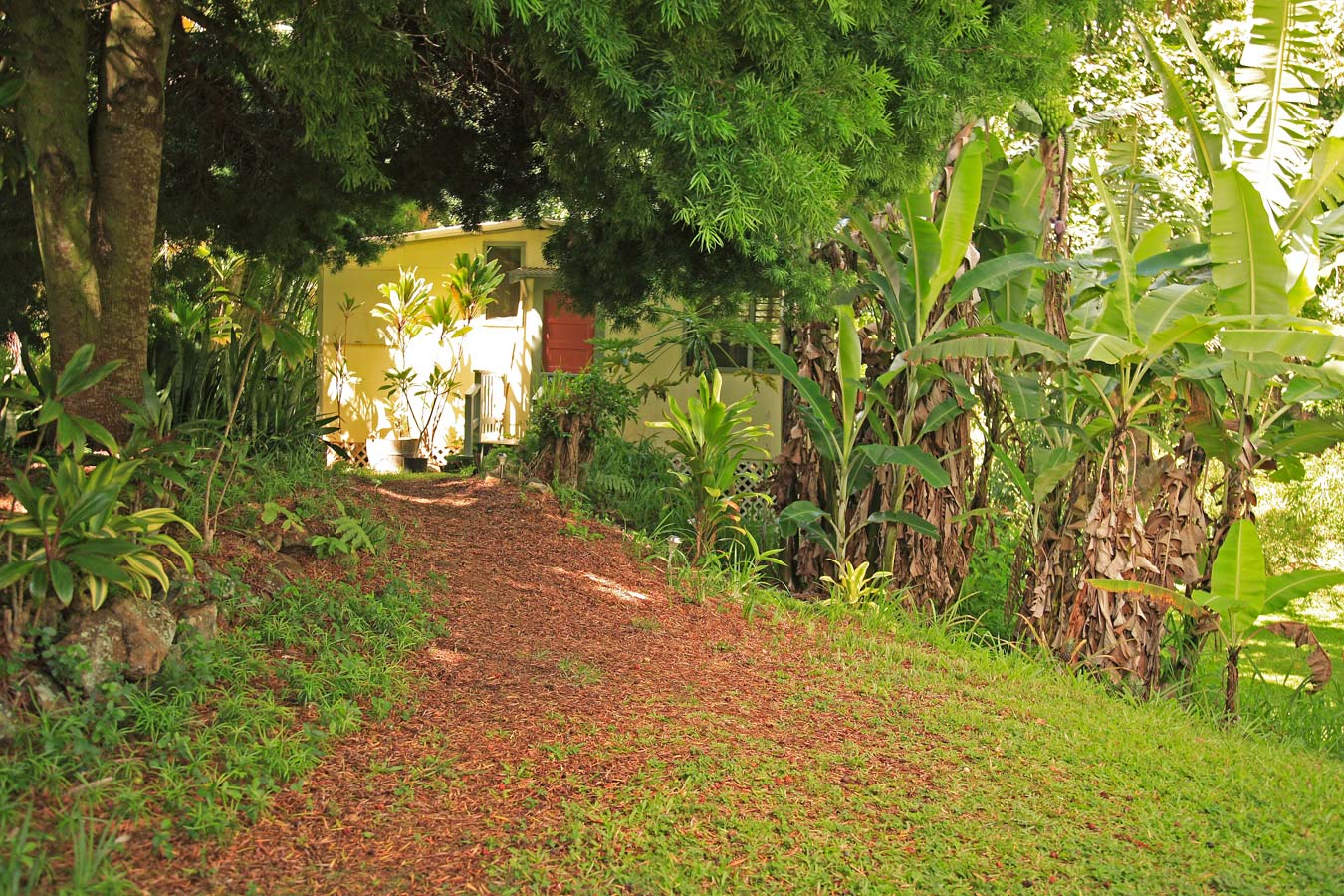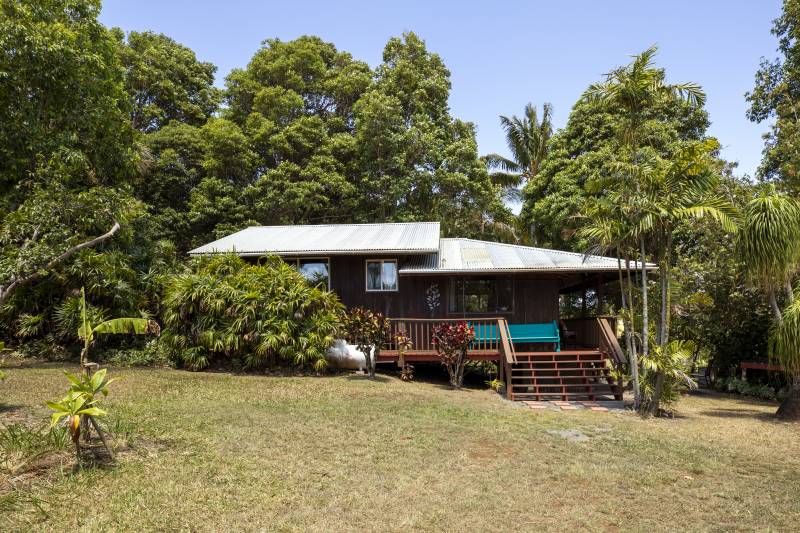Readers who have been following my reports on the Big Islandʻs proposed hosted short term vacation rental (Transient Accommodation Rental) regulations will remember that there is a package of three bills, one of which addressed ADUʻs – the new preferred term for ʻohana or secondary homes on a single lot.
That third bill has now been passed by the Hawaiʻi County Council and signed by the Mayor. Here is a quick recap of what it says and the implications.

Many property in rural Hawaiʻi have secondary dwellings, which may or may not have been built with permits. This past listing of mine had one where the owners were able to get an As Built permit for it.
Hawaiʻi State and County Bills Ease Permitting for Additional Dwelling Units (ADU)
At the Hawaiʻi State level, one of the key bills passed to accelerate the creation of affordable housing was Senate Bill 3202 which requires each of Hawaiʻis counties to adopt or amend ordinances by December 31, 2026, to allow for at least two accessory dwelling units (ADUs) on all residentially zoned lots.
Hawaiʻi County Bill 123 was already on the table as part of the Transient Accommodation Rental package. After a year of proposals, community meetings, and five drafts, the main bill on short term vacation rentals (now termed Transient Accommodation Rentals to conform with the name of the state tax imposed) was introduced with two companion bills, going first to the planning commissions for review.
In that package of three bills, Bill 123 looked like this in April 2024:
Bill 123 deals with what are called ʻohana dwellings, a term defined in state statute and implemented at the county level in 1996 to provide for building a second dwelling on a residential property for extended family. Those dwellings are typically referred to across the country as “Additional Dwelling Units” or ADUs, and the Hawaiʻi County Code would follow this terminology. The main purpose of this bill is to make it easier to build an ADU in order to ease the shortage of housing for the local population, including long-term rentals.
Once the State mandate was signed by the Governor, there was an incentive for Hawaiʻi County to accelerate action on the ADU-related bill separately from the main, still contentious, vacation rental package.
As passed and signed by the Mayor this week, Bill 123 goes well beyond what was required at the State level:
- Up to three ADUs can be built in addition to the main dwelling. The State required at least two, but lot sizes on the Big Island are typically larger than on Oʻahu where most legislators reside.
- In Hawaiʻi county, the new ordinance allows these ADUs in Residential (RS), Duplex (RD), Residential-Agricultural District (RA), Agricultural (A), and Family Agricultural (FA) zoning districts. The State law only said “residential” zoning.
- The intent of both bills is to provide homes for extended family, and for long term rentals. Bill 123 allows for the ADUs to be up to 1,250 sq ft and only one unit can be used as a transient accommodation rental.
I know that in the small rural community where I reside, long term residents were cheering this week at the idea that now they could build homes on the family property to keep their adult children nearby.

Yes – you can turn an existing smaller home like this sweet one bedroom into an ADU and build a new main dwelling, according to the newly signed ordinance.
Caution: Not Every Parcel Will be Eligible for Additional Dwelling Units Even With This Bill
There is always the fine print: “Ensuring compliance with infrastructure and safety standards, including requirements for sewage disposal and water supply.”
In this case, the disclaimer in Bill 123 is essentially that you can only build one, two or three additional homes on your property IF other governmental restrictions will allow it. In other words, all the other rules for permitting apply. One key limitation will be that in rural areas without sewer service, each individual waste water system requires a minimum of 10,000 sq ft. Typical residentially zoned lots may be too small to support a second septic system, hence the current limitation of a total of five bedrooms on a single system would limit ADU possibilities. (If you look at the photos from my own cesspool to septic system conversion, the 10,000 sq ft minimum makes more sense).
I cannot repeat this enough: all building code restrictions apply.You still have to get permits. If you want an As Built Permit, the dwelling will have to be brought up to current code, including plumbing and electrical, even if it was built decades ago. However, that will still be cheaper than building from ground up! And in Hawaiʻi County, your tiny home on wheels with no permanent wastewater solution does not qualify as a permitted dwelling. Thatʻs a whole separate topic.
One final caution. While these changes to Hawaiʻi County Code basically eliminate the distinction between ʻohana units that were on residential zoning, and additional farm dwellings that were on agricultural zoning (and state land use designation), there will be property tax consequences if your ADUs on ag land are regular long term rentals rather than farm worker housing in the presence of active agriculture. Stay tuned for my next blog post on the current administrative clarifications of last yearʻs County bill changing the property tax agricultural dedication framework.




Leave your opinion here. Please be nice. Your Email address will be kept private, this form is secure and we never spam you.